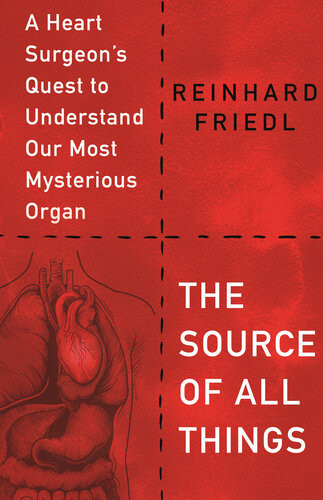

Most ebook files are in PDF format, so you can easily read them using various software such as Foxit Reader or directly on the Google Chrome browser.
Some ebook files are released by publishers in other formats such as .awz, .mobi, .epub, .fb2, etc. You may need to install specific software to read these formats on mobile/PC, such as Calibre.
Please read the tutorial at this link: https://ebookbell.com/faq
We offer FREE conversion to the popular formats you request; however, this may take some time. Therefore, right after payment, please email us, and we will try to provide the service as quickly as possible.
For some exceptional file formats or broken links (if any), please refrain from opening any disputes. Instead, email us first, and we will try to assist within a maximum of 6 hours.
EbookBell Team

4.4
82 reviewsIn the tradition of Henry Marsh's Do No Harm, Reinhard Friedl's The Source of All Things is a heart surgeon's personal investigation of the human heart, moving from his riveting clinical experiences to a more poetic understanding of its workings.
The heart is our most important organ. Yet despite that it has not changed since the appearance of Homo sapiens 300,000 years ago, it is also our most mysterious. In most human cultures, it is seen as the source of love, sympathy, joy, courage, strength and wisdom.
What if the heart could answer questions neurosciences can't begin to? Having witnessed the extraordinary complexity and unpredictability of human hearts in the operating theatre—each one individual, like a fingerprint—heart surgeon Reinhard Friedl looked again at this "primitive pump" to reconcile it with his experiences from thousands of heart operations.
In this book, he presents findings from various scientific disciplines, such as secret connections of the heart and brain and their influence on emotions and consciousness. He reveals the miracle that is the heart that we speak about so often yet is strangely foreign to many human beings.
Full of compelling patient stories, The Source of All Things ends with a plea: that we recognize the heart's wisdom and adopt a more heart-centered way of living, leading to greater health and more joy.